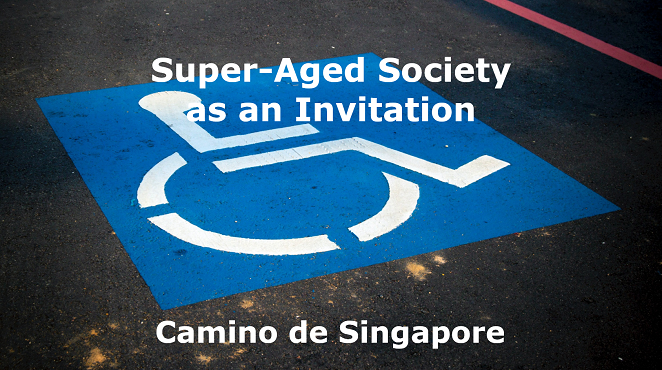No products in the cart.

Six years ago, Singapore population arrived at the “aged” status, which means that 14% of the population are aged 65 years and older. In three years’ time, we will hit the “super-aged” mark, where senior citizens make up 21% of the population. The rate at which Singapore’s population ages is one of the fastest in the world, and it can be slowed down only by immigration.
The economic impact cannot be overstated. The effect on workforce productivity for sustainable economic growth has been discussed widely. The implication for healthcare spending, which has been cited as a reason for raising taxes, also features prominently in public discourse. As we age, we become more vulnerable to a wider range of diseases.
Equally important, if not more important, is the social impact of rapidly ageing population. There is an obsession with remaining young, or at least appearing youthful, for as long as possible. (Indeed, the greatest factor for the success of the skincare segment is probably fear of ageing.) This bias says a lot about how we might think about the elderly. Furthermore, even more so than the aged appearance, how society treats seniors with dementia is perhaps even more indicative of our collective fear of getting old. A recent study found that 60% of people with dementia feel they are treated as less competent. To be clear, dementia is not part of natural ageing. Rather, the risk of having dementia significantly increases as we age.
The bias against ageing, or at best ignorance of it, can influence the way we design products (which I discussed previously in my reflection on digital banking) and spaces or buildings. Are our buildings accessible for seniors on wheelchair, for example? It is important to do an audit of our facilities to check for accessibility.
Fortunately, there has been a marked improvement on the way we treat the elderly with dementia. Hopefully, this is indicative of a society increasingly less prejudiced against the aged. As the old adage, affirmed by St Thomas Aquinas, goes: we cannot love what we do not know. While an increasingly aged population reveals more of our prejudice against ageing, it also exposes more of us to it. Now, more of us are caregivers for the elderly. Perhaps this is why the number of people with dementia who face rejection has more than halved for the past four years. Indeed, the study also found that men are significantly less open to dementia than women. This is probably because there are more women caregivers than male ones.
The increase of exposure and empathy has also made an impact on the way we design our environment. There is an increasing number of dementia points for persons with dementia and those who need more resources. There are now more pilot studies to transform districts so as to better accommodate the healthcare needs of our seniors.
The impact of a super-aged population on the society is massive, and we need to find a way to manage it well. Nevertheless, as the number of elderly persons becomes more numerous, society can no longer ignore them. In a way, this is a positive development. The Church constantly urges the world to seek the common good. This means we must strive to ensure that every person is given the conditions and resources necessary to develop and live a fulfilling life.
Let us be challenged today to treat our seniors better regardless of how old we are. Let us be aware of our ageist biases. For those of us who make decisions on working conditions for older workers, this invitation is perhaps even more urgent.
Erwin Susanto is a staff member of Caritas Singapore. He enjoys arcane discourses on Old Testament/Hebrew Bible in the context of the Ancient Near East. He also enjoys thinking about all kinds of contemporary issues and sometimes wonders if punditry is fun.
